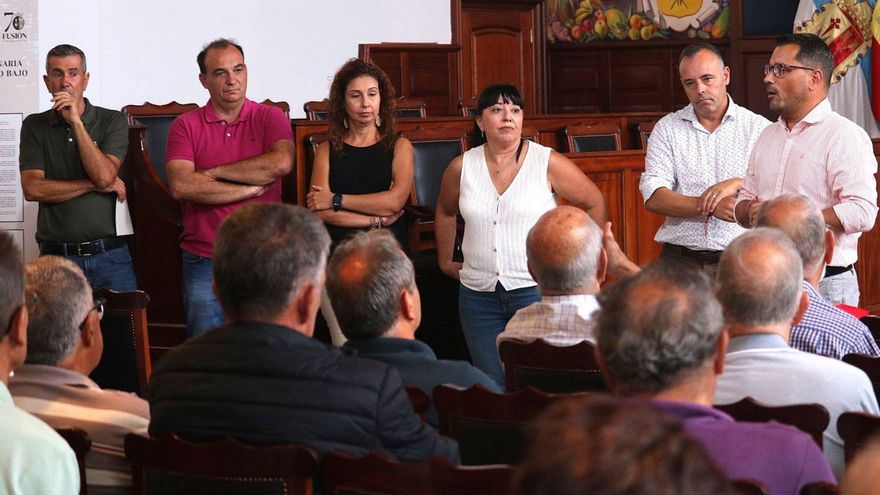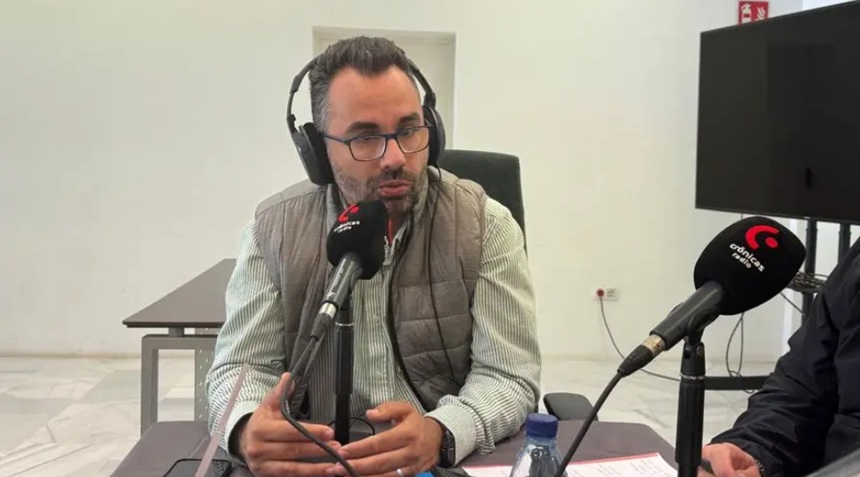Local Police Collaborate to Combat Phylloxera in Tenerife

Local police, in collaboration with the Seprona unit of the Civil Guard, will oversee the monitoring related to potential transfers and movements between cultivation areas to control the spread of phylloxera. This was announced by the mayor of Los Realejos, Adolfo González, following a meeting held yesterday in the town hall’s plenary chamber.
According to the council, the meeting was convened to discuss concerns and issues arising from the detection of the phylloxera plague affecting vine cultivation on the island of Tenerife. The session was led by Mayor González and attended by around fifty local growers and wine producers. Also present were the councillor for Rural Development from Los Realejos, Alexis Hernández, and the municipal technician for the area, Tesi Hernández. Additionally, Valerio García and Marian Fernández, the secretary and technician of the Regulatory Council for the Denomination of Origin Valle de la Orotava, were in attendance, along with Lorenzo Rodríguez, the Agricultural Extension Agent from the Tenerife Council in the Valle de La Orotava.
During the meeting, attendees voiced their concerns and asked pertinent questions regarding the detection of this plague, its risks, and the protocols, regulations, and urgent phytosanitary measures outlined in the Order of 20 August from the Ministry of Agriculture, Livestock, Fisheries, and Food Sovereignty, in coordination with the Ministry of Primary Sector of the Tenerife Council, aimed at its eradication and control to prevent its spread.
The councils of Los Realejos and La Orotava held another meeting last week, alongside the regional regulatory council, with whom they maintain close communication. As stated in an informational guide published by the DO Council of Valle de La Orotava, both then and yesterday, they reiterated that, “in the event of detecting this plague, it is mandatory to report it first to the Agricultural Extension Service of La Orotava (922328009) and subsequently to the Plant Health Service of the province,” reported Adolfo González yesterday.
The Councillor for Rural Development, Alexis Hernández, warned that “while phylloxera has not currently been detected in the crops of the Valle de La Orotava, we must remain vigilant at all times, as every effort is crucial for the protection of our fields.” The councillor reminded that “failing to adhere to the established measures against this plague may lead to fines and penalties.”
Criticism within the Council
In the Council, the PSOE of Tenerife yesterday denounced the “resistance” of the Corporation’s president, Rosa Dávila, to convene the extraordinary plenary session requested on 24 August to address the phylloxera plague, which was detected at the end of July, although it was made public on 5 August.
The general secretary of the PSOE in Tenerife, Tamara Raya, expressed regret that, after more than a month, “there has been neither a meeting, nor a measure, nor an explanation from the Tenerife Council, neither from the president nor her vice president.” Raya considered such silence “unacceptable during a crisis that directly impacts Tenerife’s agriculture sector and such a strategic industry as viticulture.”













